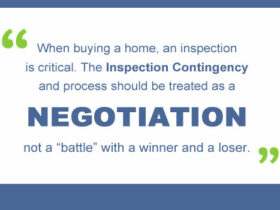There’s perhaps no debate more polarizing in the real estate world than whether city living or suburb life is better. It may even be a significant internal debate for some individuals at various points in their lives.
While determining which is better is ultimately subjective, there are a few key considerations to determine which is better for your unique life. Here are some top questions to ask yourself when deciding whether living in the city or suburbs is better for you.
For informational purposes only. Always consult with a licensed real estate professional before proceeding with any real estate transaction.
Choosing a Preferred Home Style
While there are versatile dwelling styles in the city and the suburbs, some designs can be more challenging to find in one or the other. For example, many city dwellings are walk-ups and flats, whereas the suburbs are dominated by houses and single-family units. If you prefer one style over the other, it could impact your decision on where to live.
That being said, it’s not impossible to find a unique place in the location you desire. You can work with UMoveFree to find something to your liking in the city or a realtor to help you find an offbeat home in the suburbs. Those transitioning from renter to homeowner or looking for the benefits of a rental balanced with the benefits of ownership can always look for a condo development in either location. Condos offer more of a rental feel, letting you leave the maintenance and upkeep to someone else while building equity through homeownership.
Considering Space Needs
One of the primary reasons that people gravitate from the city to the suburbs is the need for living space. Dwellings in the city are typically smaller and don’t have private yards or green space. Conversely, homes in the suburbs tend to offer more room to roam. An extra bedroom and backyard could be a must-have if you have a growing household.
Keep in mind that this issue is a generalization. Many city dwellers use the parks and common areas as their backyard, doing something different every day. There are plenty of homes in the suburbs with minimal yard space and houses stacked one on top of the other. It ultimately depends on which city or suburb you’re in.
Considering the Job Market and Commute
For many people who want to live in the suburbs, the big conflict is working and commuting. As most jobs tend to be in urban areas, moving to suburbs means traveling into the city anyway.
Since the pandemic, this consideration has changed a bit, as many companies have permanently shifted to remote work. However, it’s uncertain how long that will last.
Lifestyle and Convenience Considerations
 You should also consider your lifestyle and the convenience of living in the city versus the suburbs. If you’re someone who likes to go out and do things every weekend, you won’t get that same lifestyle in the suburbs. Furthermore, city dwellers benefit from walking, cabbing, or taking public transit anywhere they want to go. If you live in the suburbs, you need a vehicle, which only adds to the cost of living.
You should also consider your lifestyle and the convenience of living in the city versus the suburbs. If you’re someone who likes to go out and do things every weekend, you won’t get that same lifestyle in the suburbs. Furthermore, city dwellers benefit from walking, cabbing, or taking public transit anywhere they want to go. If you live in the suburbs, you need a vehicle, which only adds to the cost of living.
Understanding Cost Implications
 In addition to car ownership, there are many other cost implications to consider. Everything in the city tends to be more expensive than in the suburbs, from groceries and restaurants to the cost per square foot of living space.
In addition to car ownership, there are many other cost implications to consider. Everything in the city tends to be more expensive than in the suburbs, from groceries and restaurants to the cost per square foot of living space.
Of course, the trade-off is not paying for a car or house maintenance. You’ll need to crunch the numbers to see which is better for you.
Cultural Considerations
Finally, cities offer more access to cultural groups and activities. Those from diverse ethnic groups may desire that closeness in their community, which is hard to find in the suburbs.
Determining whether city or suburb life is better is a personal choice, but it’s an important step towards homeownership. Keep these key considerations in mind to determine which is better for your life at this point.
For informational purposes only. Always consult with a licensed real estate professional before proceeding with any real estate transaction.




